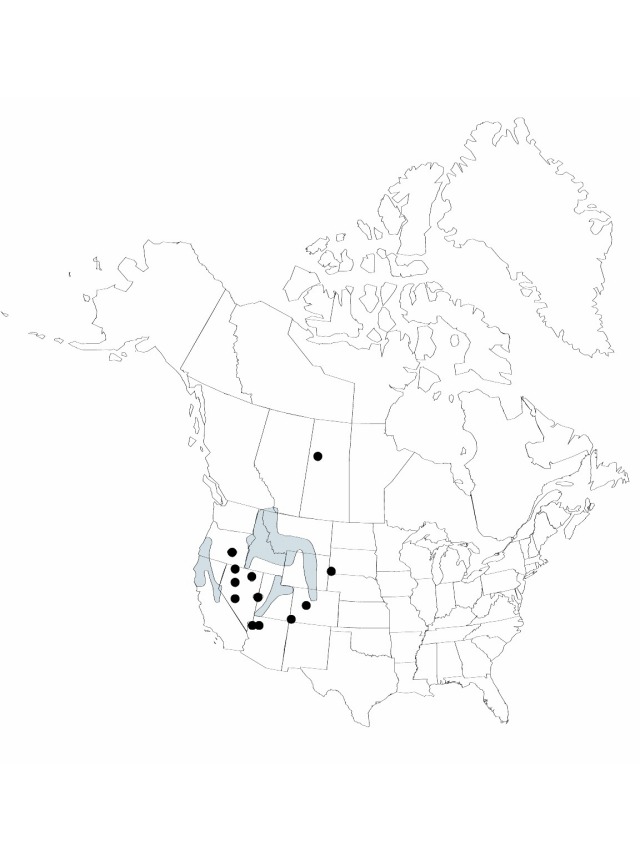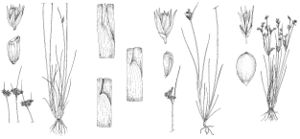Juncus confusus
Proceedings of the Biological Society of Washington 10: 127. 1896.
Herbs, perennial, cespitose, 3–5 dm. Rhizomes densely branched. Culms (1–)5–15(–25). Cataphylls 1–3. Leaves basal, 2–4; auricles 0.3–0.7 mm, apex usually rounded, scarious to membranaceous; blade flat, 3–15 cm × 0.4–1 mm, margins entire. Inflorescences 3–25-flowered, congested, 1–2.5 × 1–2 cm; primary bract usually exceeding inflorescence. Flowers not secund;: bracteoles 2; tepals dark green to blackish, usually with brownish midstripe, lanceolate to lanceolate-ovate, 3.5–4.3 mm, margins clear; outer and inner series nearly equal; stamens 6, filaments 0.6–0.9 mm, anthers 0.3–0.5 mm; style 0.1 mm. Capsules tan or darker, 3-locular, nearly globose to widely obvoid, 2.5–3.5 × 1.3–1.8 mm, shorter than perianth. Seeds yellowish, obovoid to ellipsioid, 0.4–0.5 mm, not tailed. 2n = 80.
Phenology: Flowering and fruiting late spring–summer.
Habitat: Moist, open grasslands and meadows
Elevation: 700–3400 m
Distribution

Alta., B.C., Sask., Ariz., Calif., Colo., Idaho, Nev., N.Mex., Mont., Oreg., S.Dak., Utah, Wash., Wyo.
Discussion
Selected References
None.
